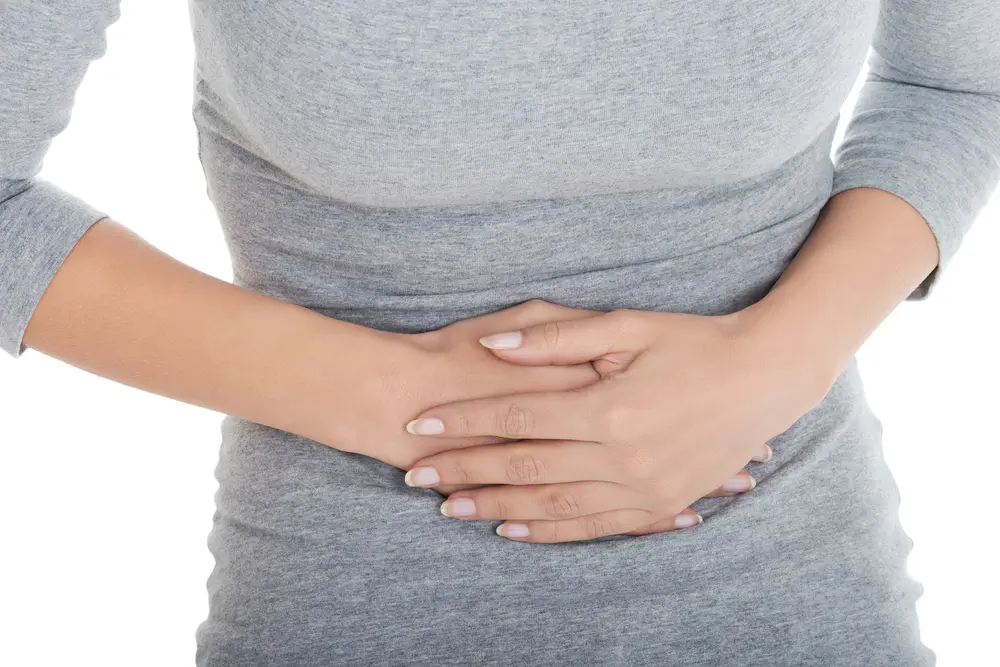What is Endometriosis? And how do you know if you have it?
Medically Reviewed by Dr Ali Zavery
Last updated on 11.06.2024
Introduction
Endometriosis is a very common condition- affecting around 1 in 9 girls and women. It can be hard to diagnose as it doesn’t typically show up on blood tests or ultrasound scans- in fact the average time to reach a diagnosis is over 6 years. As well as that, symptoms can vary between women- it can be a relatively silent condition for some people, or it can cause severe pelvic pain, fertility problems and other complications. It may also be incorrectly diagnosed as something else, such as irritable bowel syndrome.
What is Endometriosis?
In Endometriosis, the kind of tissue that lines the uterus (womb) also starts to grow outside the uterus, in places where it shouldn’t normally be- most commonly on and around the ovaries, the fallopian tubes, and occasionally the bowel or bladder- though other locations such as the lungs, brain or joints can be affected. When a woman gets her period, this tissue tends to bleed, causing inflammation, pain and sometimes scarring.
Why does Endometriosis happen?
It’s not entirely clear why Endometriosis occurs. One common theory is that, rather than passing out through the vagina, some menstrual tissue passes up through the uterus, and exits via the fallopian tubes, into the pelvis. It may then implant there, and bleed each month when a woman has her period.
- There does appear to be a strong genetic link- women with a close relative who has Endometriosis are up to 10 times more likely to get it themselves. It may also be linked to the following:
- having first pregnancy at an older age
- having a first menstrual period before11 years of age
- a tendency to heavy periods or periods lasting longer than five days
- having short menstrual cycles less than 28 days
Risk of endometriosis may be reduced by the following:
- young age at first pregnancy
- having more children– this may be due to the hormone progesterone during pregnancy
- breastfeeding for longer periods
What are the symptoms of Endometriosis?
Endometriosis may be a silent condition (in around 25% of cases), but can also lead to the following symptoms:
- pelvic pain
- painful periods- this tends to worsen over time
- heavy or irregular vaginal bleeding
- pain during sex
- pain when passing urine or bowel motions (often worse during a period)
- difficulty holding on to urine or increased urinary frequency
- constipation and/or diarrhoea
- legs pains and lower back ache
- tiredness
- bloating
- endometriomas (a type of ovarian cyst)
- infertility- this is thought to be caused by scarring of the fallopian tubes, though there may be other factors
All of these symptoms can be caused by other conditions too, for example, pelvic infections or irritable bowel syndrome- so it’s important to get assessed by a doctor.
How is Endometriosis diagnosed?
You or your doctor may suspect Endometriosis on the basis of your symptoms. The only way to formally diagnose Endometriosis is to undergo a laparoscopy and have a biopsy (tissue sample) taken. A laparoscopy is a surgical procedure, performed under a general anaesthetic where a thin telescope is passed through the umbilicus (belly button), allowing your doctor to see inside your abdomen. During a laparoscopy the tissues can be magnified, so even small amounts of endometriosis can be seen. If there is tissue that looks like endometriosis present, it is biopsied (sampled) and sent to a lab to be examined.
A pelvic ultrasound may show some signs if there is endometriosis on the ovaries, but is not a reliable way to detect endometriosis
Is surgery always needed to diagnose Endometriosis?
Your doctor may suspect endometriosis based on your symptoms and physical examination. The decision to have a diagnosis confirmed with a laparoscopy should be discussed very carefully with your doctor, as it is an invasive test which has some risks. The preferred management plan very much depends on a woman’s individual symptoms, and whether fertilty is a concern. In some cases a doctor and patient may agree to try treating symptoms with medications at first, rather than undergoing surgery, but this can always be reviewed if required, or if not effective.
Is there a blood test for Endometriosis?
No, unfortunately there is no simple blood test that can diagnose Endometriosis.
Does Endometriosis cause infertility?
There are many reasons a couple may find it hard to become pregnant, but Endometriosis is one of the possible issues. This may be due to inflammation and the formation scar tissue in the fallopian tubes, though there may be other factors. It is thought that in Endometriosis the woman’s egg may be less likely to fertilise, or there may be substances produced by the woman’s body that stop sperm functioning normally.
What is the treatment for Endometriosis?
This depends on the symptoms a woman has. If there are no symptoms, or only mild ones, then no treatment may be required. If endometriosis is present but it is not causing pain or problems with fertility, it does not need to be treated, though your doctor may recommend check ups from time to time.
There are three kinds of treatments for endometriosis: medical treatments (medications), surgical treatments (involving an operation) and complementary treatments (such as physiotherapy, psychology etc.)
- Pain relief- non hormonal medications such as painkillers or anti-inflammatories may help.
- Hormonal treatments include the oral contraceptive pill (containing oestrogen) and progestogens in a variety of forms. Hormonal treatments can be given as an injection, or continuously in a rod inserted under the skin, or released from an IUD.
- Surgery- Laser or diathermy, may be performed via keyhole surgery (laparoscopy)- in these procedures, the endometriosis is surgically removed. In more severe cases the option of surgical removal of the uterus (hysterectomy) and/or ovaries (oophorectomy) may be considered. However, this is a major operation, and is only considered in very severe cases where all other options have failed. Sometimes, unfortunately, a woman will continue to have pain or other symptoms following surgery.
- Physiotherapy can be beneficial, particularly where bowel or bladder symptoms are prominent.
- Psychological treatment can also be very effective in the management of chronic pain.
If you have further questions about Endometriosis, speak to a GP or a gynaecologist.
Additional resources for Endometriosis in Australia:
Endometriosis Australia a nationally accredited charity that raises awareness, educates and funds research for endometriosis.
Support Groups for Endometriosis in Australia
Getting a Mental Health Care Plan in Australia: Your Guide
Getting a Mental Health Care Plan in Australia: Your Guide Mental health matters—and if you’re feeling overwhelmed, anxious, or down, a mental health care plan can help. But what is it, and how do [...]
UTI Symptoms and Treatment: What You Need to Know
UTI Symptoms and Treatment: What You Need to Know Urinary Tract Infections (UTIs) are common, uncomfortable, and often disruptive. But what exactly are the signs to watch for, and how can you get relief [...]
Free Mental Health Care Plan Online | Bulk-Billed by Qoctor
Free Mental Health Care Plan Online | Bulk-Billed by Qoctor Discover how to get a free, bulk-billed Mental Health Care Plan (MHCP) in Australia through Qoctor's telehealth service. Accessing [...]







